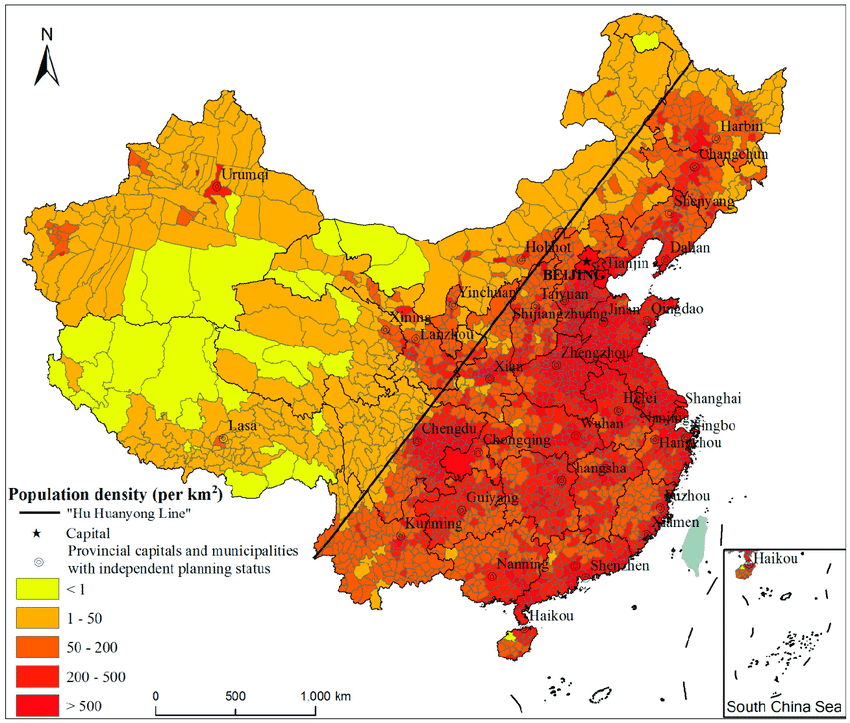
The population of the People's Republic of China has decreased by 2022 for 1,411 billion, a fall of about 850.000 people compared to the previous year, announced the “China National Bureau of Statistics”/NBS during a briefing on the last day 19/01. The last time something like this happened was in the 1960s., when Mao Zedong's disastrous policy of imposing forced industrialization on the country through the "Great Leap Forward/Forward" policy, between 1958 and 1960, with the intention of transforming the People's Republic into a developed and socially egalitarian nation in record time, through forced land reform and urban industrialization, mainly in the steel industry, had the disastrous consequence of the death of about 18 millions of individuals, according to conservative estimates; or close to 55,6 millions, according to other studies.
However, Accelerated population growth led the government to establish, in 1979, the “one child” policy, that placed a heavy burden on families; the authorities feared that the exponential growth of the human mass would make the country ungovernable. Those who violated the law were subject to severe punishment., including forced abortions and sterilizations. In addition, Cultural attitudes towards gender have led to increased levels of abortions and infanticide of female babies in favor of male children, causing a worrying imbalance between men and women.
After all, demographic unrest prompted Chinese leaders to act… In 2015, the government relaxed the one-child policy, allowing most people to have a second child. As a consequence, the birth rate rose briefly, but soon declined. currently, China's fertility rate, of 1,5 a 1,6 children per woman, is below replacement rate, which is about 2,1. in the biggest cities, in its turn, she is among the shortest in the world, well below 1,0.
The demographic costs are becoming painfully obvious. The impact of an aging population and the “gap” between generations has been particularly acute.: the number of individuals with more than 60 years continues to increase while the working-age population has been steadily decreasing: defined as the individuals between 15 e 59 years, it has been decreasing since 2011. The number of individuals in this age group decreased by 3,71 million last year alone. Meanwhile, the share of those with more than 60 years increased from 10,4%, in 2000, for 17,9%, in 2018. The recent prognosis is that by 2050 a third of Chinese will be in the range of 60 years, or more. Giving them decent living conditions will impose a huge burden on young people, unless the elderly can be persuaded to work longer. By the way, the average retirement age in China, of 54 years, is among the lowest on the planet, while life expectancy skyrocketed. However, persuading people to work longer is proving to be a difficult task for the government, who even tried, in 2008, but backed down in the face of public outcry. Meanwhile, in a report published in 2019, the “Chinese Academy of Social Sciences” has warned that China's main pension fund could become practically in default by 2035. Such data reveal a gloomy scenario for the Chinese Communist Party!
A second demographic concern is the continuing imbalance between men and women.. Since the decade of 1980, birth restrictions and easy access to prenatal testing have led to widespread abortion of girls. As a result, in 2019 there were 30 million more men than women, contrary to the world average, and the disparity in the number of people of marriageable age only tends to grow. The government fears that the(a)s young people who cannot find a partner(The) may become a source of agitation.
Experts warn that, be supported, this trend could also pose a problem for the rest of the planet, as China plays a key role in driving the global economy. Meanwhile, neighboring india, currently with 1,415 billion inhabitants, will overtake China this year as the most populous country on the planet. However,, with a difference – very significant: more than half of its population has less than 25 years old!!! I will deal with this topic at a later opportunity.’
